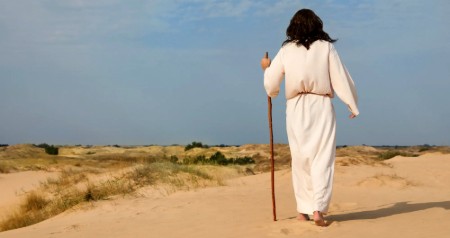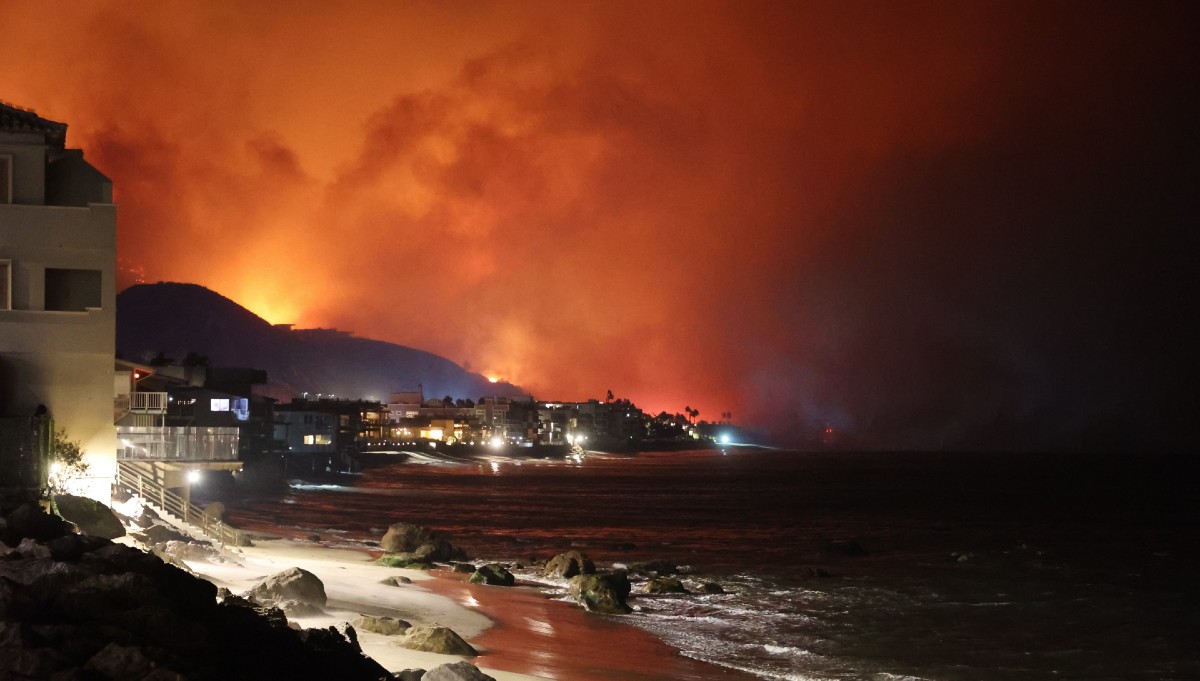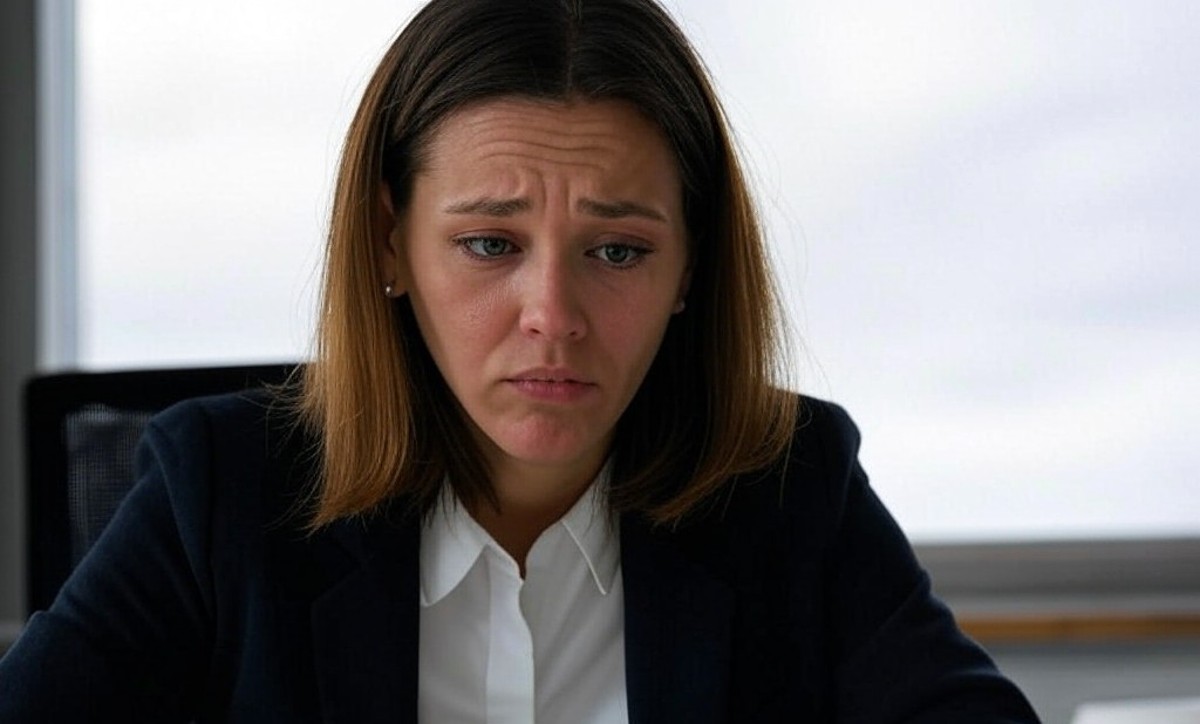We ask you, urgently: don’t scroll past this
Dear readers, Catholic Online was de-platformed by Shopify for our pro-life beliefs. They shut down our Catholic Online, Catholic Online School, Prayer Candles, and Catholic Online Learning Resources—essential faith tools serving over 1.4 million students and millions of families worldwide. Our founders, now in their 70's, just gave their entire life savings to protect this mission. But fewer than 2% of readers donate. If everyone gave just $5, the cost of a coffee, we could rebuild stronger and keep Catholic education free for all. Stand with us in faith. Thank you.Help Now >
Our Lady of the Massacre: Eyewitness Account of Attack on Iraqi Catholic Church
FREE Catholic Classes
'Leave them alone, take me!' shouts Fr. Wasim, and is immediately hit with a bullet square in the chest. The crucifix becomes a shooting target. The terrorists riddle it with gunfire shouting mockingly: 'Come on, tell him to save you! You are infidels.'
Highlights
Chiesa (chiesa.espresso.repubblica.it)
12/9/2010 (1 decade ago)
Published in Middle East
Keywords: Jihad, Muslims, extremists, Iraq, Catholic, Anti-Catholic, Terrorism
P>BAGHDAD, Iraq (Chiesa) - Raghada al-Wafi walks quickly through the streets of the Karrada neighborhood, on the shore of the Tigris that overlooks the armored heart of Baghdad, the Green Zone. Her husband is with her, she is content, and smiles. It is Sunday, October 31, and they have good news to share with Fr. Thair Abdallah, the young priest who united them in matrimony: Raghada is expecting a child. They are going to Our Lady of Perpetual Help, the big Syriac Catholic church in the neighborhood, its entrance topped by a big cross.
There are two hundred faithful at the Sunday afternoon Mass, including one Chaldean and one Orthodox family. Fr. Wasim is hearing confessions near the entrance, in the shadow of the massive wooden doors. His associate, the elderly Fr. Rafael Qusaimi, is giving the choir its last instructions before the celebration. The singing begins, and Fr. Thair appears to the right of the apse, walking quickly toward the altar. In the Syrian Catholic liturgical year, it is the Sunday of the dedication...
It is 5:15, and Fr. Thair is about to finish the homily, when outside of the church a burst of automatic weapon fire breaks the silence. The priest tries to calm the faithful, the shots have to be aimed somewhere else, he says, there is nothing to be afraid of, it is normal in a country that for years has had ears for nothing but the noises of the war. But the shooting continues, and then comes a loud explosion, near the church door. The faithful are terrorized, they want to escape but there's nowhere to run. "Let's get up, let's pray together," Fr. Thair insists...
Fr. Wasim tries to hold the church's wooden door closed, but it is thrown backward by the brigade of armed men, who burst in with faces uncovered, wearing the uniform of the Iraqi army: a classic trick in the jihadist repertoire. At the back of the church, behind the altar, the other two priests are pushing as many of the faithful as possible toward the sacristy, to shield them from the attack. "Leave them alone, take me!" shouts Fr. Wasim, and is immediately hit with a bullet square in the chest. The one who hits him doesn't even know who it is he is shooting. The priest clasps his hands to his chest, and the man turns to the companion beside him: "Who is this?" "He is a priest," the other replies, and unleashes a burst of gunfire on the dying Fr. Wasim.
"Leave them alone, take me!" Fr. Thair also shouts from the altar. He too is dispatched in an instant, and dies in the arms of his dumbfounded mother.
Fr. Rafael succeeds in pushing about seventy of the faithful into the sacristy, to the right of the altar, before the terrorists throw themselves against the door. It holds, but the attackers find an alternative: the room has a little window at the top without any windowpanes, and tossing a few hand grenades inside is a game for the young butchers. The shrapnel from one of the grenades hits Fr. Rafael, wounding him seriously in the abdomen. Others are hit by the bullets that come through the door. A woman shuts her five-month-old son in a drawer, saving him from the attack.
Fr. Thair's mother cannot know this, but she is about to lose her other son, who had gone with her to Mass. The terrorists make everyone lie down on the floor, except for the young men. These must remain standing. One by one, they shoot them down.
If it weren't for its sandy color, the graceful architecture of Our Lady of Perpetual Help would seem like an alien installation compared to the monotonous buildings around it. The imposing cross above the facade stands out among the low houses, a reminder of a time when Baghdad was a multicultural city that welcomed people from all over Iraq. The Tigris surrounds the Karrada neighborhood on three sides, making it a Shiite Muslim peninsula with a strong Christian presence, in the heart of the city. Getting here from the Green Zone is as simple as crossing the river, but the Iraqi special forces don't get to the church until six in the evening, forty-five minutes after the attack.
In the meantime, inside, the armed brigade is holding the survivors hostage, and imposing silence by firing at the first sign of movement. At least three of the jihadists are kids, between fourteen and fifteen years old. Each of them wears an explosive belt - with metal ball bearings to increase the killing power - and has an automatic weapon and hand grenades. The government will say afterward that there were five of them, not from Iraq, and that they died during the attack. The overwhelming proof of their foreign origin is held to be the five passports (three Yemeni and two Egyptian) found in the rubble, which was cleaned up hastily the next day while the army blocked the entrance to the church so that no one could see the devastation. The witnesses confirm that the attackers did not speak Iraqi dialects, but the classical Arabic that is used among Arabs of different nationalities. Going by their accents, there were definitely Egyptians, and also a Syrian. This is a relevant detail, seeing that the strategy of Al-Qaeda in Iraq is controlled from areas on the Syrian border, where terrorist leaders operate, like Abu Khalaf, the military commander who was killed recently, and their great ideologue, the seventy-year-old "sheik" Issa al Masri. Issa, which means "Jesus" in Arabic.
The witness accounts, however, tell of eight persons and at least one other who commanded the operations from the terrace around the roof of the church. There may have been even more, to judge by the operation in which almost one month later, on Saturday, November 27, the Iraqi security forces arrested members of an Al-Qaeda cell in the al Mansour neighborhood in Baghdad: twelve men, with toxic material and six tons of explosives, who confessed to taking part in the attack on the church. The initial plan must have been different: bursting in, the jihadist brigade had with it four cases of explosives, which were supposed to explode around the perimeter of the church, collapsing it and killing all of the two hundred faithful present at the Sunday Mass. Why this did not happen is a secret that the five terrorists have taken with them to the grave, or perhaps it is buried in the mind of the unidentified person in civilian clothes whom a guard swears he saw leaving the school next to the church. The survivors recount that about halfway through the attack, one of the terrorists called someone outside with a walkie-talkie. "We're out of bullets, what should we do?" A quick order, with a sinister result: "Okay, now we'll start using the bombs."
Inside the church, while they are keeping the faithful hostage, the terrorists seem strangely relaxed, in spite of the siege by the Iraqi army and the muffled droning of the American helicopters watching the situation from the air. They are so comfortable that they first permit themselves the maghrib, the afternoon prayer, and then the ishŕ, the evening prayer, among the corpses of their victims.
Outside, the armed forces are waiting for who knows what, because it is clear to everyone that there will be no offer of mediation, from either side. A lay employee of the Baghdad curia who has rushed to the site of the siege tries to make himself useful. He is determined, he wants to make use of his detailed knowledge of the building layout to unblock the situation. But as soon as he tries to offer his help to the soldiers, he is told bluntly "this is our business, get out of here." The soldiers also brusquely push away a man who is begging them to do something to save his wife and two children, a boy and a girl, held hostage in the church. The standoff lasts almost three hours.
Night falls. The walls of Our Lady of Perpetual Help turn red, then fade to black. The siege is suspended in an unreal sunset, muddied by the mist, for the entire time from the arrival of the Iraqi army to the final blitz to try to free the hostages. Intermittent gunfire breaks the silence, marking the rhythm of the confrontation into the distance. Neither side studies the other: the wait is on to enact an ending already written.
The terrorists shoot anyone who pulls out a cell phone, as demonstrated by the wounds of two girls hit in the hand and arm when their phones started to ring. They shoot at the first suspicious sound, and the children who cry are killed instantly. Among the splayed bodies, the dead and living are piled up together. One girl recounts: "A chandelier had fallen on me, pinning me down by my side. I had shards of glass stuck in my skin, a man's foot on my head and a girl's body pushing down on my chest, covering me with the blood that was pouring from her wounds." As she heard the bullets whizzing past her, she was able to call her family waiting for her at home: "I was sure that I was going to die, and I wanted to say goodbye to them for the last time: I love you." A member of the brigade shoots the furnace, so the gas will asphyxiate anyone nearby.
The crucifix becomes a shooting target. The terrorists riddle it with gunfire - the survivors recount - shouting mockingly: "Come on, tell him to save you!" And again: "You are infidels. We are here to avenge the burning of the Qur'an and the Muslim women imprisoned in Egypt." They are alluding to the false news, denied even by the Muslim Brotherhood but used as a pretext by Al-Qaeda in the offensive against the Christians, according to which the Egyptian Coptic Church locked up in a convent Camilia Chehata and Wafa Constantine, the wives of two Coptic priests, as punishment for their conversion to Islam.
When the bullets stop flying, the grenade thrown by a terrorist also ends the life of Raghada and of the child she is carrying in her womb. According to some witnesses, the woman met her death while being clutched by one of the terrorists, who had grabbed her and then blown himself up. Nor would her husband be alive to see the raid by the Iraqi army, which starts piling in through the main entrance of the church in a single clump, the umpteenth proof of the stupidity of unprepared and poorly led soldiers. "The Marines are more intelligent," notes Fr. Giorgio Jahola, a priest from Mosul who has come to Rome to have his injuries tended to at the Policlinico Gemelli. "The whole perimeter of the church is surrounded by windows, which can easily be reached from the terrace. The side entrances were usually blocked by cement barriers, but the authorities had had them removed during the two days before the attack. So other passageways were available."
The terrorists were ready: they had already recited the prayer of martyrdom: "Allah is most great, Allah is most great, there is no God but Allah." And they were determined to blow themselves up. Two of them succeeded, a third was stopped by the Iraqi soldiers when, at 9:05, they disconnected the electricity and a voice shouted: "We are the Iraqi forces, get up and be calm: we will save you."
The blitz will not be remembered among the most dazzling in history: the exchange of gunfire lasted for twenty minutes, until 9:25, when the nave and sacristy of the church were liberated. The entrance to the church was then unblocked, and, amid the disorder of the emergency workers, relatives started to run frantically from one hospital to another, in the hope of finding their loved ones still alive somewhere. Inside and around the church, 58 dead were counted, not including the attackers.
Three days later, on Tuesday, women dressed in black accompany seven coffins wrapped in the Iraqi flag. The human rights minister, Wijdan Mikheil, is at the ceremony together with the Shiite political leader Ammar al Hakimm, whose face is streaming with tears. The smoke of the incense fills the air, while more than seven hundred people greet the caskets covered with flowers that advance slowly toward the altar. Two of them hold the bodies of Fr. Thair Fr. Wasim. One moment more and they will be buried together in the cemetery under their church, poor and ravaged.
---
Chiesa is a wonderful source on all things Catholic in Europe. It is skillfully edited by Sandro Magister. SANDRO MAGISTER was born on the feast of the Guardian Angels in 1943, in the town of Busto Arsizio in the archdiocese of Milan. The following day he was baptized into the Catholic Church. His wife�s name is Anna, and he has two daughters, Sara and Marta. He lives in Rome.
Join the Movement
When you sign up below, you don't just join an email list - you're joining an entire movement for Free world class Catholic education.
-

-
Mysteries of the Rosary
-
St. Faustina Kowalska
-
Litany of the Blessed Virgin Mary
-
Saint of the Day for Wednesday, Oct 4th, 2023
-
Popular Saints
-
St. Francis of Assisi
-
Bible
-
Female / Women Saints
-
7 Morning Prayers you need to get your day started with God
-
Litany of the Blessed Virgin Mary
Introducing "Journey with the Messiah" - A Revolutionary Way to Experience the Bible
-

Catholic Response to Devastating Los Angeles Wildfires
-

Federal Court Blocks Biden Administration's Gender Identity Rule
-
A Future for Life: Introducing the Winners of the Priests for Life Pro-Life Essay Contest
-
Reflections on Pope Francis' 2025 World Day of Peace message
Daily Catholic
 Daily Readings for Friday, January 10, 2025
Daily Readings for Friday, January 10, 2025 St. William of Bourges: Saint of the Day for Friday, January 10, 2025
St. William of Bourges: Saint of the Day for Friday, January 10, 2025 Prayer for a Blessing on the New Year: Prayer of the Day for Tuesday, December 31, 2024
Prayer for a Blessing on the New Year: Prayer of the Day for Tuesday, December 31, 2024- Daily Readings for Thursday, January 09, 2025
- St. Adrian, Abbot: Saint of the Day for Thursday, January 09, 2025
- St. Theresa of the Child Jesus: Prayer of the Day for Monday, December 30, 2024
![]()
Copyright 2024 Catholic Online. All materials contained on this site, whether written, audible or visual are the exclusive property of Catholic Online and are protected under U.S. and International copyright laws, © Copyright 2024 Catholic Online. Any unauthorized use, without prior written consent of Catholic Online is strictly forbidden and prohibited.
Catholic Online is a Project of Your Catholic Voice Foundation, a Not-for-Profit Corporation. Your Catholic Voice Foundation has been granted a recognition of tax exemption under Section 501(c)(3) of the Internal Revenue Code. Federal Tax Identification Number: 81-0596847. Your gift is tax-deductible as allowed by law.






 Daily Readings for Friday, January 10, 2025
Daily Readings for Friday, January 10, 2025 St. William of Bourges: Saint of the Day for Friday, January 10, 2025
St. William of Bourges: Saint of the Day for Friday, January 10, 2025 Prayer for a Blessing on the New Year: Prayer of the Day for Tuesday, December 31, 2024
Prayer for a Blessing on the New Year: Prayer of the Day for Tuesday, December 31, 2024


